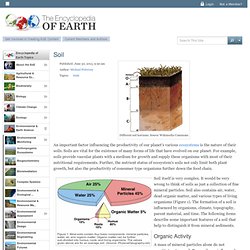

Soil loss threatens food prospects. By environment correspondent Alex Kirby Scientists say impoverishment of the soil is a major threat to the Earth's ability to feed itself. They have found that nearly 40% of the world's agricultural land is seriously degraded. The damage has already had "a significant impact" on the productivity of about 16% of the planet's farmland. And its economic and social effects have been much more significant in developing countries than in rich ones. The scientists, from the International Food Policy Research Institute (IFPRI), analysed the world's agro-ecosystem using data from satellites, maps and tabular data sets.
Land degradation causes $10 billion loss to South Asia annually. Land degradation causes $10 billion loss to South Asia annually The environmental impact on the countries of the South by soil erosion and other forms of land degradation is all too familiar. A recent United Nations study shows the high economic cost of such land degradations to the South Asian countries. Soil. An important factor influencing the productivity of our planet's various ecosystems is the nature of their soils.

Soils are vital for the existence of many forms of life that have evolved on our planet. For example, soils provide vascular plants with a medium for growth and supply these organisms with most of their nutritional requirements. Further, the nutrient status of ecosystem's soils not only limit both plant growth, but also the productivity of consumer type organisms further down the food chain.
NRCS Soils. International Biochar Initiative. Web Soil Survey - Home.